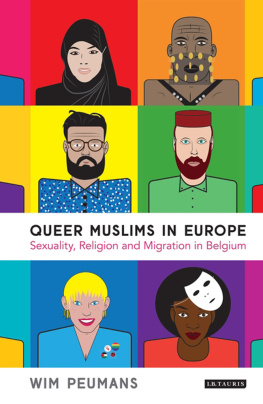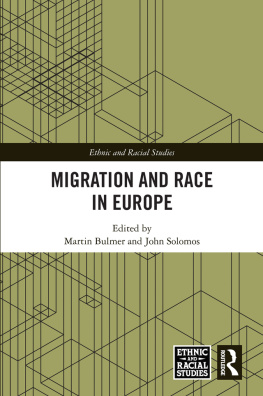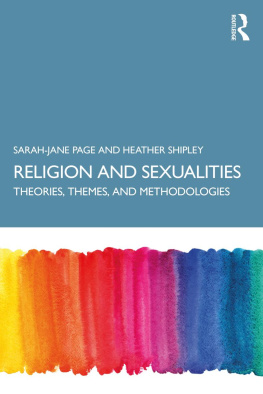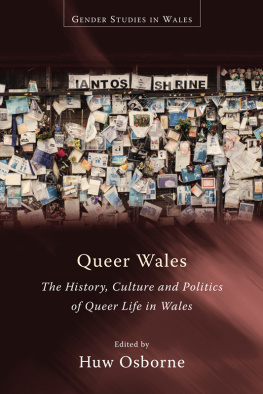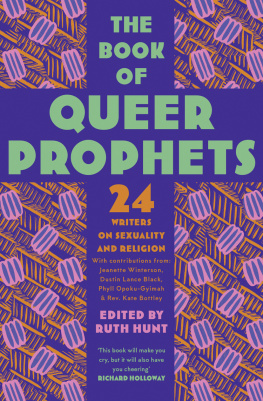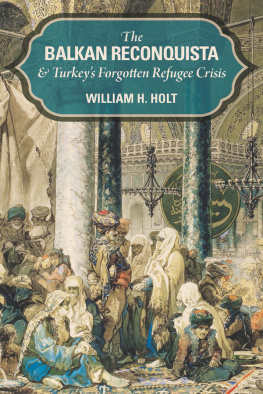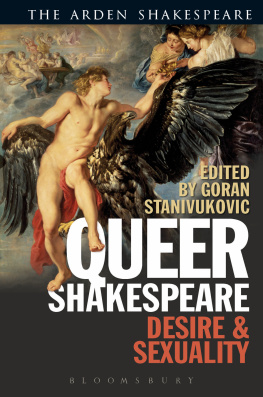Wim Peumans is a writer. He is an associated researcher in the African Centre for Migration and Society at the University of the Witwatersrand, Johannesburg. In 2016 he was a postdoctoral fellow at the same centre, working on the Andrew Mellon-funded project, Governing Morality: Sexuality, Gender and Asylum in South Africa. As a fellow of the Research Foundation Flanders (FWO-Vlaanderen) he obtained his PhD in Social and Cultural Anthropology at the Interculturalism, Migration and Minorities Research Centre at KU Leuven. Peumans award-winning masters thesis was published as a book and his third book a political biography of his own father was a top 10 bestseller in Belgium. Queer Muslims in Europe received the 2019 Honorary Mention of the Association for Middle-East Womens Studies Book Award. Peumans has also been a visiting trainee fellow at the University of Kent Canterbury and his work has appeared in various journals, including Sexualities, the Journal of Diversity and Gender Studies and Studi Emigrazione/Migration Studies.
Wims urgent book presents insights into the lives of queer Muslims, who sit at the cusp of an intersection long assumed to be impossible. He offers us a window through which to look past rampant essentializations of Muslim communities, while at the same time questioning Eurocentric understandings of queerness.
Hamed Sinno, lead singer of the Lebanese indie band Mashrou Leila
Timely, urgent and important, this book will be a significant contribution to a grossly under-studied academic area.
Andrew Kam-Tuck Yip, Professor of Sociology, University of Nottingham
This eminently readable and meticulously researched book is essential reading for scholars of transnational migration. The book provides intimate portraits of queer Muslims, negotiating both heteronormative and homonormative moralities. Detailing the intersections between sexuality, gender, religion and migration, the book affi rms that there is no inherent contradiction between being Muslim and queer.
Saskia E. Wieringa, Professor and Chair of Womens Same-Sex
Relations Crossculturally, University of Amsterdam
A valuable contribution... written in an accessible and richly engaging style.
Association for Feminist Anthropology
Gender and Islam Series
Featuring original approaches to the cultural, social and political transitions in Muslim-majority countries and contexts, the Gender and Islam Series examines sexuality and gender as they appear in diverse societies. The series goes beyond the Islamic world to include issues of gender and sexuality in other religious traditions and in areas where Islam could be an influencing factor. Spanning early Islamic centuries to the present time, and using a variety of political, literary and scientific sources, the series studies the approach to gender and sexuality as set out in Islamic foundational texts as well as considering the contemporary fatawa on LGBTQ questions.
The series editors encourage contributions from different disciplinary backgrounds and scientific cultures to stimulate new and cutting-edge debates, and to reflect the ways in which gender, sex and sexuality cut across historical periods and linguistic and regional boundaries.
Series Editors
Professor Nadia Al-Bagdadi, Central European University, Budapest
Professor Randi Deguilhem, CNRS, TELEMME-MMSH, Aix-en-Provence
Professor Bettina Dennerlein, University of Zurich
Advisory Board
Madawi Al-Rasheed, Middle East Centre, London School of Economics
Kathryn Babayan, University of Michigan
Jocelyne Cesari, Berkley Center, Georgetown University and University of Birmingham
Dawn Chatty, University of Oxford
Ratna Ghosh, McGill University
Jane McAuliffe, John W. Kluge Center, Library of Congress and Berkley Center, Georgetown University
For more information, or to submit a proposal, please contact:
Sophie Rudland, Editor, I.B.Tauris
Published and Forthcoming Titles
Queer Muslims in Europe: Sexuality, Religion and Migration in Belgium Wim Peumans
978 1 78831 078 9
Sexual Norms in the Arab World: Desire and Transgression in Islamic Culture
Aymon Kreil, Lucia Sorbera and Serena Tolino (Eds)
978 1 78453 996 2
I have so many people to thank; where to begin? My sincere apologies if I forget to mention anyone and of course, it goes without saying, all remaining errors in this book are of my own doing.
First and foremost, I would like to express my deepest gratitude to the people I talked to during hours of conversation and interviews, everyone I met in the field, everyone who let me into their lives. It has been a humbling experience. Your stories have inspired and challenged me, emotionally, intellectually and personally. I truly hope that you recognize yourself in these pages and that I have accurately conveyed your experiences. Merci, bedankt, thank you, shukran jazeelan. I want to thank all the organizations I worked with for their help and trust.
I also would like to thank all academics and activists who paved the way in studies on gender and sexuality, whose work has inspired me to do research and helped me to think about the issues central to this book.
This book is based on my dissertation, which I submitted as a requirement to obtain a PhD in Social and Cultural Anthropology. I am most grateful to my supervisors, Christiane Stallaert and Johan Leman, for their trust, support and guidance. Together, my supervisors and I wrote an application for funding and nearly a year after graduation I received a positive reply from the FWO-Vlaanderen. The FWO has generously supported my research project, both financially and administratively. My friend Jessica was right when she said that with this kind of funding she had every right to call me a scholarship princess.
I would like to thank the members of the initial PhD guidance commission, Andrew Yip and Sarah Bracke, for their feedback and support. I was honoured that Nadia Fadil, Andrew Yip, Ruba Salih and Saskia Wieringa were part of the final jury.
I am truly indebted to my masters thesis supervisor Marie-Claire Foblets, who has helped me publish my masters thesis as a book. Thank you to Lina Molokotos-Liederman for the language editing. Thank you to the administration and social sciences library in Leuven. My colleagues in Leuven have provided me with an intellectually stimulating working environment.
I was privileged and honoured to be a visiting trainee fellow at the School of Anthropology and Conservation, University of Kent, Canterbury in 201415. I have received help and support from David Henig, Miguel Alexiades and Daniela Peluso. I was inspired by the work of other PhD students at the University of Kent.


